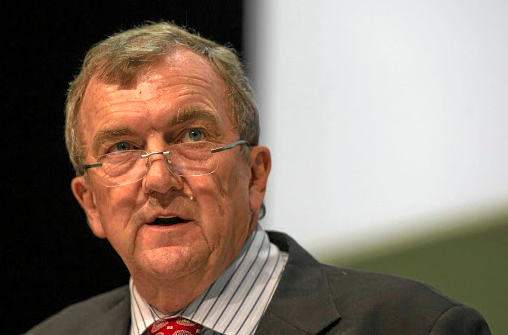(London, 2 January 2018) – Mark Bristow, the FTSE 100’s longest-serving CEO, is set to begin his new job today. With Bristow’s Randgold Resources plc having completed its $6.1 billion merger with Canada’s mining giant Barrick Gold Corp., he takes charge of the world’s largest gold mining company, which will keep the Barrick name. Yet for it to become the industry’s “new champion”, Bristow must overcome significant challenges. Of these, one stands out as his “biggest headache”: Acacia Mining plc.
Acacia, a UK-listed former Barrick Gold subsidiary that went public in 2010, remains majority-owned by Barrick, and its Tanzanian gold mines account for roughly 12% of Barrick’s revenue. Yet corruption investigations and serious human rights abuses at its main North Mara gold mine, in northern Tanzania, dramatically undermine its performance and legitimacy.
In 2015, Bristow walked away from an earlier joint venture with another mining giant, AngloGold Ashanti, for a Ghanaian gold mine. Key for Bristow was that the mine was “in conflict with everyone” and “did not have a social license”. Proceeding with the Barrick merger suggests he believes Acacia’s social license to operate is still recoverable. Whether he’s right will say much about Bristow’s stewardship.
The corruption and human rights issues at the North Mara mine are intertwined. In 2017 the Tanzanian government hit Acacia with a crippling export ban on unprocessed metals and a $190 billion bill for tax evasion. In October 2018, it charged Acacia’s former vice-president, three Tanzanian subsidiaries and a subsidiary’s manager with corruption-related offences dating as far back as 2008. The charges against Acacia’s subsidiary North Mara Gold Mine Ltd (NMGM) allege it laundered over $370 million that were the proceeds of forgery and tax evasion.
The challenge facing Bristow goes deeper. Also filed in October 2018 are corruption charges reportedly alleging that the North Mara mine, a current and a former employee paid government officials over $1 million in bribes to favour the mine’s expansion by undervaluing land, and removing and “deal[ing] with errant villagers”. Some of the officials were also charged. The charge sheet alleges that the North Mara mine even paid bribes to prevent a costly relocation of a primary school.
The North Mara mine is not a defendant in the second set of charges and those charged in both proceedings have pleaded not guilty.
How to manage these supposed “errant villagers” is key to understanding Acacia’s current conundrum. Its North Mara mine has long been bedevilled by reports of serious human rights abuses, including killings, sexual violence and assault. A 2016 Tanzanian parliamentary inquiry received reports of 65 killings and 270 people injured by police paid by Acacia’s subsidiary to provide security. Between just 2014 and 2016, our organization RAID, alongside MiningWatch Canada, documented at least 22 people killed and 69 injured by security forces at or near the mine, a figure that likely only captures a portion of the total.
Acacia claims the incidence of violence has decreased. While that may be true (in part because the mining has gone underground rather than in an open pit) the problem of the company’s policy on the use of force by police and mine security is far from resolved. Moreover, Acacia has failed to institute an adequate grievance mechanism for those who have been victims, leaving many destitute and angry towards the company.
Acacia, which confidentially settled a UK lawsuit in 2015 by North Mara victims, denies liability for the abuses. It blames those scavenging on the mine site for trespassing, justifying the use of force – which includes severe beatings and killings – as necessary to defend company property and personnel. Given the extreme violence perpetrated by the mine’s security, these arguments are specious on their own terms.
There’s no dispute that local people live in impoverished circumstances, nor that the mine was developed on what was their land. Yet the corruption allegations, if true, suggest that Acacia is more responsible for the former than previously known, and has achieved the latter through unlawful means. If true, Bristow’s not only taking on a company exposed to potential liability for serious human rights abuses but also one that may have cheated local people of their land.
Bristow will need to be decisive and quick to tackle these challenges. Recent reports of an investigation into Acacia by the UK’s Serious Fraud Office risks exposing Acacia further. Acacia has denied awareness of this investigation.
Bristow has floated the idea of buying out Acacia, and his reconfigured negotiating team reportedly agreed to pay Tanzania’s government $300 million toward a resolution on the tax dispute. But these steps alone won’t restore Acacia’s social licence. Bristow will need to ensure Acacia respects the rights of local communities and fairly compensates victims for the wrongs done to begin curing the corruption and human rights “headache” that awaits him on his first day.
See also: Barrick and Randgold Warned About Human Rights Ahead of Merger

